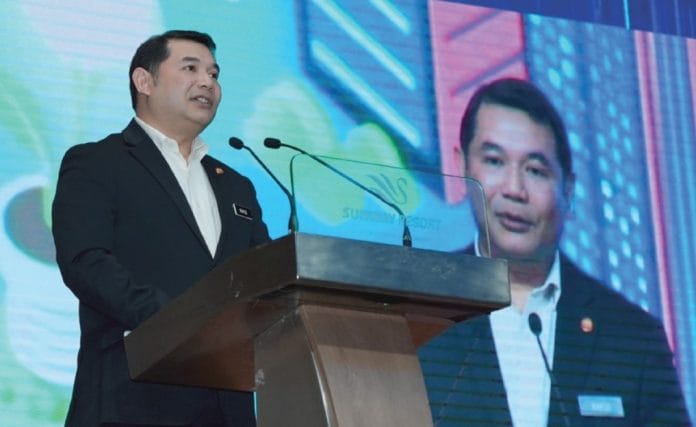In a move aimed at addressing the pressing issue of low wages and transforming the labor market, Malaysia’s Economy Minister, Rafizi Ramli, presented the Progressive Wage Policy Proposal White Paper in the Dewan Rakyat today. The proposed policy aims to not only uplift the working class by ensuring higher wages but also to enhance overall productivity and competitiveness in the country’s economy.
The White Paper underscores the need for a comprehensive approach to tackle the challenges faced by Malaysia’s economy, including slow global growth, domestic structural issues, and labor market problems such as low productivity, skills mismatch, and dependence on foreign workers. The government’s commitment to steering the country towards becoming a high-income nation is central to the proposed wage reform.
The proposed Progressive Wage Policy is designed to be a catalyst for reducing income inequality and increasing worker productivity. The comprehensive White Paper outlines a three-tiered approach: voluntary implementation, incentivisation, and productivity-based wage increases. The voluntary nature of the policy allows companies, especially micro, small, and medium enterprises (PMKS), sufficient flexibility to adapt to the new wage structure.
Economy Minister Rafizi Ramli stressed the importance of a collective effort involving the government, employers, and employees to ensure the success of the Progressive Wage Policy. The proposed model incorporates feedback from various stakeholders, including ministries, employers’ associations, and trade unions, indicating a collaborative approach to address the complex issue of low wages.
The White Paper highlights the critical issue of low wages in Malaysia, with statistics revealing that 73.3% of formal sector workers earn less than RM5,000 per month. The proposal seeks to bridge this gap by implementing a system that links wage increases with productivity, thereby addressing the root causes of low wages.
While acknowledging the government’s past efforts, including the introduction of the Minimum Wage Order (PMG) and the encouragement of the Productivity Linked Wage System (PLWS), the White Paper emphasises the limited success of these measures. The proposed Progressive Wage Policy seeks to build upon these initiatives, offering a more effective and targeted approach to wage reform.
The heart of the proposal is the Progressive Wage Policy Model, which aims to progressively increase wages in tandem with enhanced employee productivity. The voluntary nature of the implementation, coupled with government incentives, is expected to encourage widespread participation. The policy introduces a star rating system to evaluate companies, fostering healthy competition in salary increase performance.
Assuming a government incentive of RM2 billion, the Progressive Wage Policy is projected to benefit 1.05 million workers, contributing to an additional real GDP of RM3.3 billion. The governance structure involves a tripartite commitment between the government, employers, and employees, with the establishment of committees to oversee strategy, implementation, and evaluation.
The implementation of the Progressive Wage Policy is set to commence with a pilot project in June 2024, involving 1,000 companies. This pilot phase will undergo rigorous evaluation to gauge effectiveness before full-scale implementation.
The proposed Progressive Wage Policy stands as a groundbreaking initiative to reshape Malaysia’s labor market, promising higher wages, increased productivity, and a more equitable distribution of wealth. As the government aims to propel Malaysia into a high-income nation, this policy marks a significant step towards achieving that vision.









